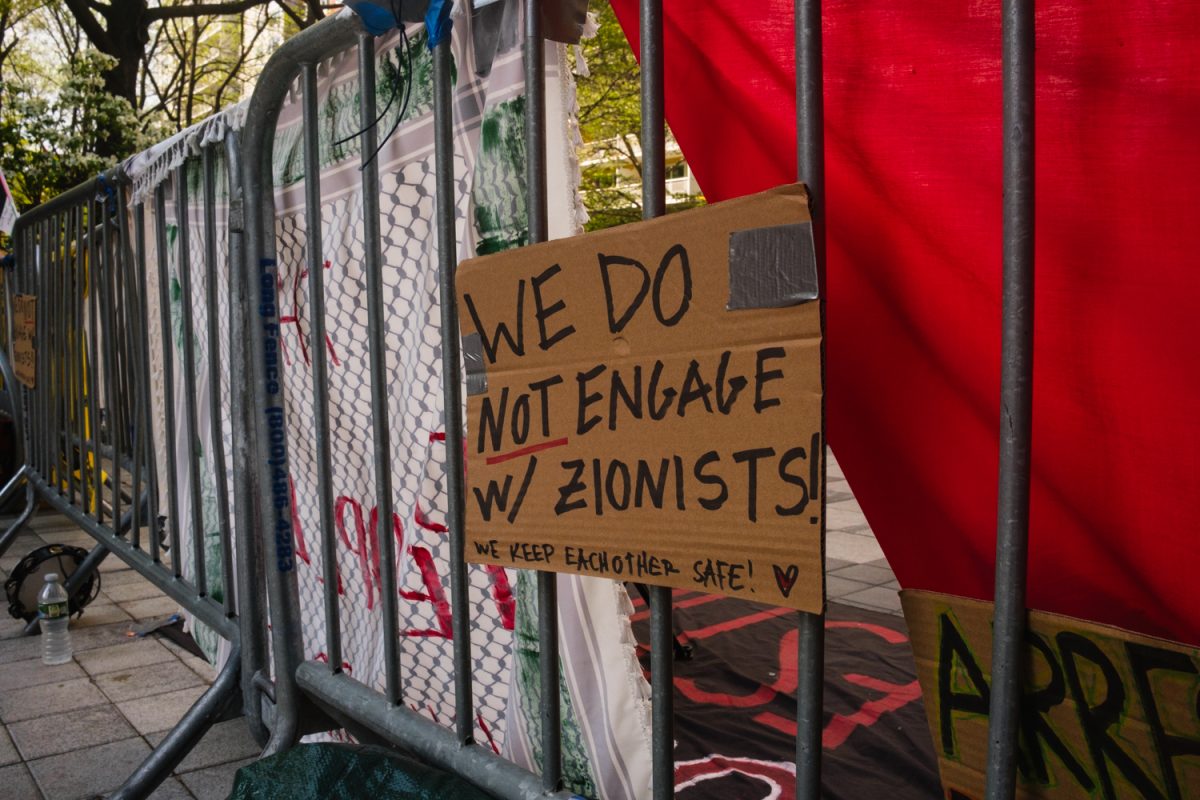NYU updated its student conduct guidelines to include “code words, like ‘Zionist,’” as examples of speech that could violate the university’s Non-Discrimination and Anti-Harassment policies, Dean of Students Rafael Rodriguez announced in a universitywide email Thursday.
In the updated document, the university defines discrimination as “adverse treatment based on an actual or perceived characteristic” and cited the “use or dissemination of tropes about protected groups” and “calls for genocide of an entire people or group” as examples of NDAH policy violations. The document also includes a section on protest activity, which states that protesting off-campus does not “immunize” students from disciplinary action and that any student may be subject to removing their mask or showing their NYU ID to Campus Safety personnel.
“For many Jewish people, Zionism is a part of their Jewish identity,” the document reads. “Speech and conduct that would violate the NDAH if targeting Jewish or Israeli people can also violate the NDAH if directed toward Zionists.”
In a Sunday press release, NYU’s Faculty & Staff for Justice in Palestine group said the policy “sets a dangerous precedent” and “troublingly equates criticism of Zionism with discrimination against Jewish people.” The group also said the change “represents an intensification of NYU’s year-long effort to censor criticism and criminalize protest,” echoing concerns expressed by the New York City chapter of the Palestinian Youth Movement in an Instagram post on Friday.
University spokesperson John Beckman said claims that the policy was updated to suppress on-campus protests are “untrue,” noting that the guidelines allow students to freely express opinions on a country as long as their conduct is not “targeted at or infused with discriminatory comments.”
“Protest and dissent cannot violate our policies on discrimination and harassment — including antisemitism and other forms of hate — which extend civil rights protections to members of our community, nor can they disrupt NYU’s teaching, learning and research activities, or university events, or any of the other activities or operations vital to fulfilling NYU’s academic mission,” Beckman wrote to WSN.
Beckman also said that the updated Guidance and Expectations on Student Conduct came in “response to calls for greater clarity” from over 300 students, faculty, administrators and staff who participated in over 20 listening sessions this summer, as well as from the Student Government Assembly and “other sources.” Last semester, NYU president Linda Mills — who has faced significant backlash for the university’s crackdown on pro-Palestinian demonstrations — said the “only way forward” at the university would be to organize “a variety of listening sessions.”
In its press release, FSJP also reiterated its dissent for the university’s adoption of the International Holocaust Remembrance Alliance’s definition of antisemitism. The definition, which includes “the targeting of the state of Israel, conceived as a Jewish collectivity,” has been widely criticized by on-campus groups and FSJP has previously urged NYU to instead define antisemitism as “discrimination, prejudice, hostility or violence against Jews as Jews.”
Last month, NYU reaffirmed its commitment to the IHRA definition after reaching a confidential settlement in a November lawsuit filed by three Jewish students that accused the university of indifference toward incidents of antisemitism since the start of the war in Gaza. Three professors had sought to become additional defendants in the lawsuit in April, alleging that the university’s definition of antisemitism threatens their First Amendment rights and academic freedom, but NYU denied the request. As part of the settlement, the university will create a Title VI coordinator position to oversee discrimination and harassment “based on all protected traits.”
“This weaponization of the Title VI apparatus openly threatens the university’s commitments to academic freedom and to nondiscrimination,” FSJP said in the Sunday release. “We insist that the administration reconsider these changes for the good of the university community.”
Contact Aashna Miharia at [email protected].

























































































































































